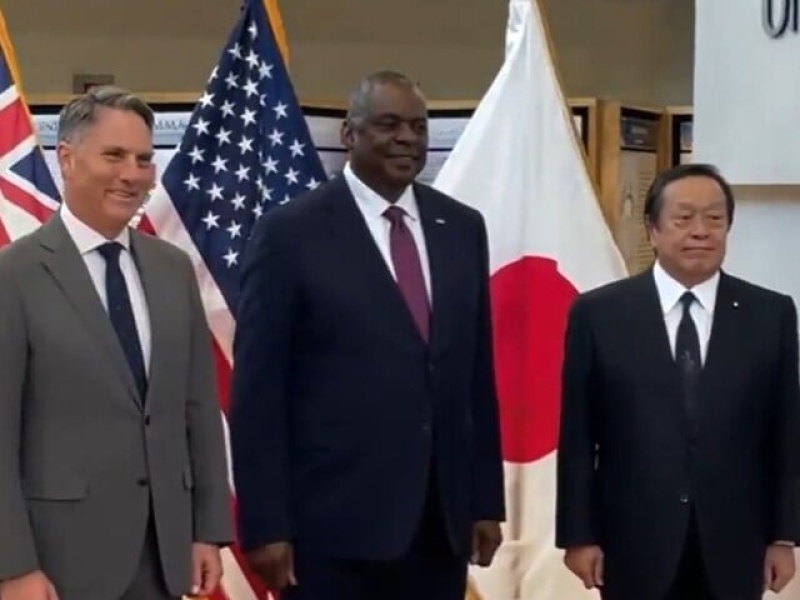- Guterres Urges Leaders to Act as UNGA Week Begins |
- BNP to go door to door for hearts and votes |
- Chittagong port tariffs increased up to 50 per cent |
- Rising Heat Cost Bangladesh $1.8 Billion in 2024 |
- Stocks extend gains; turnover drops in Dhaka, rises in Ctg |
Australia, US and Japan strengthen military cooperation

Australia, Japan and the US on Sunday committed to closer military cooperation in training their forces as the countries deepened their ties in a bid to counter China's military strength.
Australia's Minister of Defence Richard Marles hosted the US Defense Secretary Lloyd Austin and Japan's Defence Minister Gen Nakatani, Sunday for the trilateral ministers' meeting -- the first to be held in Australia.
Under the new agreement, Japan's Amphibious Rapid Deployment Brigade -- an elite marine unit -- will be deployed to Darwin to regularly work and train alongside Australian and US forces.
"It is a very important statement to the region and to the world about the commitment that our three countries have in working with each other," Marles said.
"This is going to build interoperability between our three countries."
Austin said the partnership would increase intelligence "surveillance and reconnaissance activities" between the three countries, which will "advance our goals for a secure and peaceful Indo Pacific".
The US defense chief said he was proud of what his office had done to "strengthen alliances" in the region and work with "countries that share the vision of a free and open Indo Pacific".
Canberra has drawn ever nearer to longtime ally the United States, bolstering its military in an attempt to deter the might of a rising China.
Besides rapidly developing its surface fleet, Australia plans to deploy stealthy nuclear-powered submarines in a tripartite deal with the United States and Britain known as AUKUS.
Some fear US President-elect Donald Trump could jettison or try to rewrite the pact, returning to his "America first" style of foreign policy.
But Australian officials said this month they have a "great deal of confidence" that the pact will remain.

